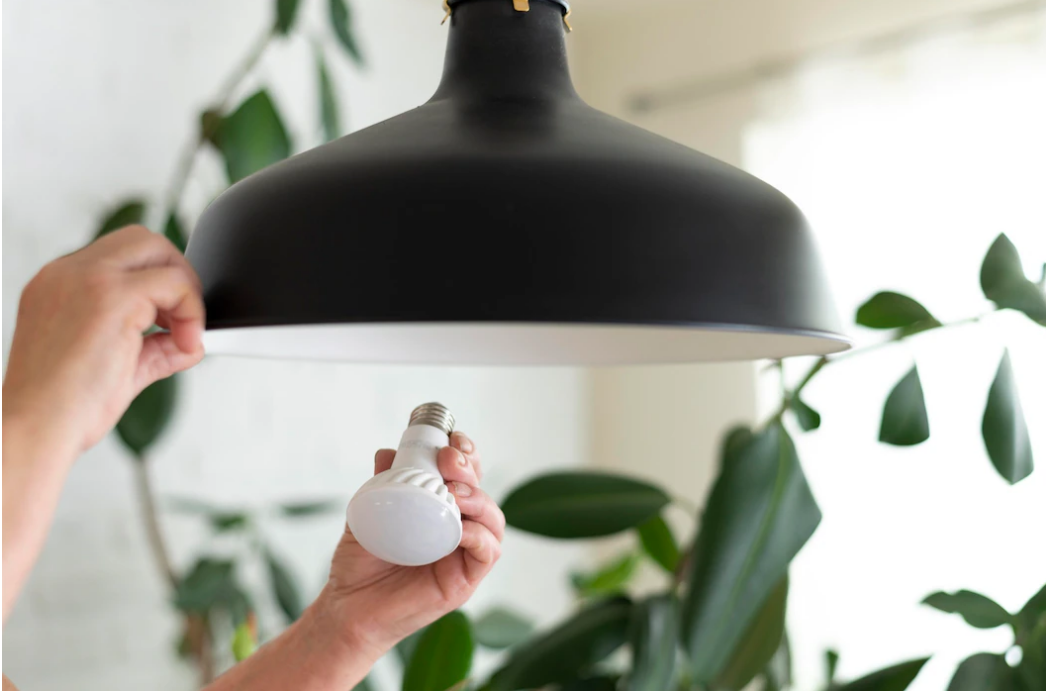
Get A Quote
Are LED Light Bad for Your Eyes?The Ultimate Guide
LED lights, a revolutionary innovation introduced in 1962, have gained a reputation as an eco-friendly substitute for conventional incandescent bulbs. INFRALUMIN LED light are not only energy-efficient, but also prove to be pocket-friendly, illuminating spaces with a spectrum of vibrant hues. It might sound like the perfect lighting solution, but there's a problem-are led light bad for your eyes! Recent research sheds light on the fact that LEDs emit blue light, which, if not managed wisely, could harm our precious peepers.
The impact of LED lights on our eyes isn't as menacing as it sounds, provided you exercise moderation in your screen time. It's essential to strike a balance and not overindulge in prolonged exposure. Being mindful of your screen habits can go a long way in safeguarding your eyes from the potential drawbacks of these illuminating marvels. I will tell you what are led light bulbs and how can we protect our eyes from LED light 。
So What Are LED Light Bulbs?
what are led light bulbs ?LED, standing for Light Emitting Diode, represents a revolutionary leap in lighting technology. Unlike traditional incandescent bulbs, LEDs operate with astonishing efficiency, utilizing up to 90% less energy to produce a comparable level of illumination. But how does this remarkable feat occur?
The magic unfolds through the intricate interplay of electrons. When an electrical current courses through a microchip, it triggers a phenomenon within these tiny powerhouses, known as LEDs, resulting in the emission of visible light. This process is driven by scientific principles, ensuring optimal energy conversion.
However, LEDs aren't without their challenges. The energy conversion generates heat, which, if not managed properly, can compromise their performance. To counter this, a heat sink comes into play, absorbing the excess heat and maintaining the LED's functionality at its peak.
In essence, LEDs stand as the epitome of energy efficiency and longevity in the world of lighting, illuminating spaces while keeping energy consumption at bay.
Are LED Lights Bad for Your Eyes?
Are led lights bad for your eyes ?As per a study conducted by The French Agency for Food, Environment, and Occupational Health and Safety (ANSES), LED lights have been flagged for their potential harm to our eyes. The blue light emitted by these lights has been found to have detrimental effects on our retinas. It not only disrupts our natural body clock, confusing our brains into staying awake when we should be sleeping, but it can also wreak havoc on our eyesight.
The study categorizes exposure to LED light as 'phototoxic,' indicating that prolonged exposure can lead to irreversible damage to retinal cells, resulting in diminished vision clarity. Chronic exposure to LEDs can accelerate the aging process of retinal tissue, reducing visual sharpness and heightening the risk of eye conditions like age-related macular degeneration (AMD). Furthermore, aside from potential retinal damage, LED lights have been associated with headaches, visual exhaustion, and an increased likelihood of accidents, as highlighted in the ANSES report.
In a nutshell, the findings underscore the need for caution when it comes to prolonged exposure to LED lights, shedding light on the potential risks they pose to our eyes and overall well-being.
How to Protect Your Eyes From LED Light?
To safeguard your peepers from the perils of blue light overexposure, there are several savvy strategies at your disposal. These nifty tricks will help ensure that the LED lighting in your digital gizmos won't leave your vision in a sorry state. Here are two tips about how to protect your eyes from led light.
1. Trim Screen Time: Cutting down on your screen time is a smart move. The less time you spend glued to LED-powered screens, like your smartphone, computer, or TV, the better. Be diligent about taking regular breaks to give your eyes some much-needed downtime. Avoid extended screen gazing, and be sure to unplug at least 2-3 hours before hitting the sack.
2. Opt for 'Warm White' LEDs: The ANSES report advises opting for LED lights that exude a 'warm white' glow over the 'cool white' variety. 'Warm white' LEDs emit lower levels of blue light, reducing the potential risk to your ocular well-being. This simple switch can make a world of difference in protecting your precious peepers.
By incorporating these practical steps into your daily routine, you can keep blue light exposure in check and ensure your eyes stay in top-notch shape despite our digital age's radiant screens.
Conclusion
Are led light bad for your eyes? LED lights, on their own, aren't eye villains, but it's the relentless glare of blue light they emit that can mess with our peepers. Prolonged exposure to this azure glow can stir up a host of issues like eye strain, splitting headaches, and a generally wonky vision. This problem escalates when we're glued to screens or basking under the unforgiving glare of fluorescent lights.
Fret not, though, for there are tricks up our sleeves to combat these ocular adversaries. To shield your eyes from the perils of LED lights, take frequent screen breaks. Let your eyes breathe amidst the digital onslaught. Tweak your screen's brightness to a level that's easy on the eyes; none of that blinding glare, thank you very much. And when it comes to selecting LED lights, be a savvy shopper. Choose the ones that suit your needs, sparing your eyes from the worst of the blue light onslaught. If you want to learn more about what is LED light bulb ,come to INFRALUMIN!

